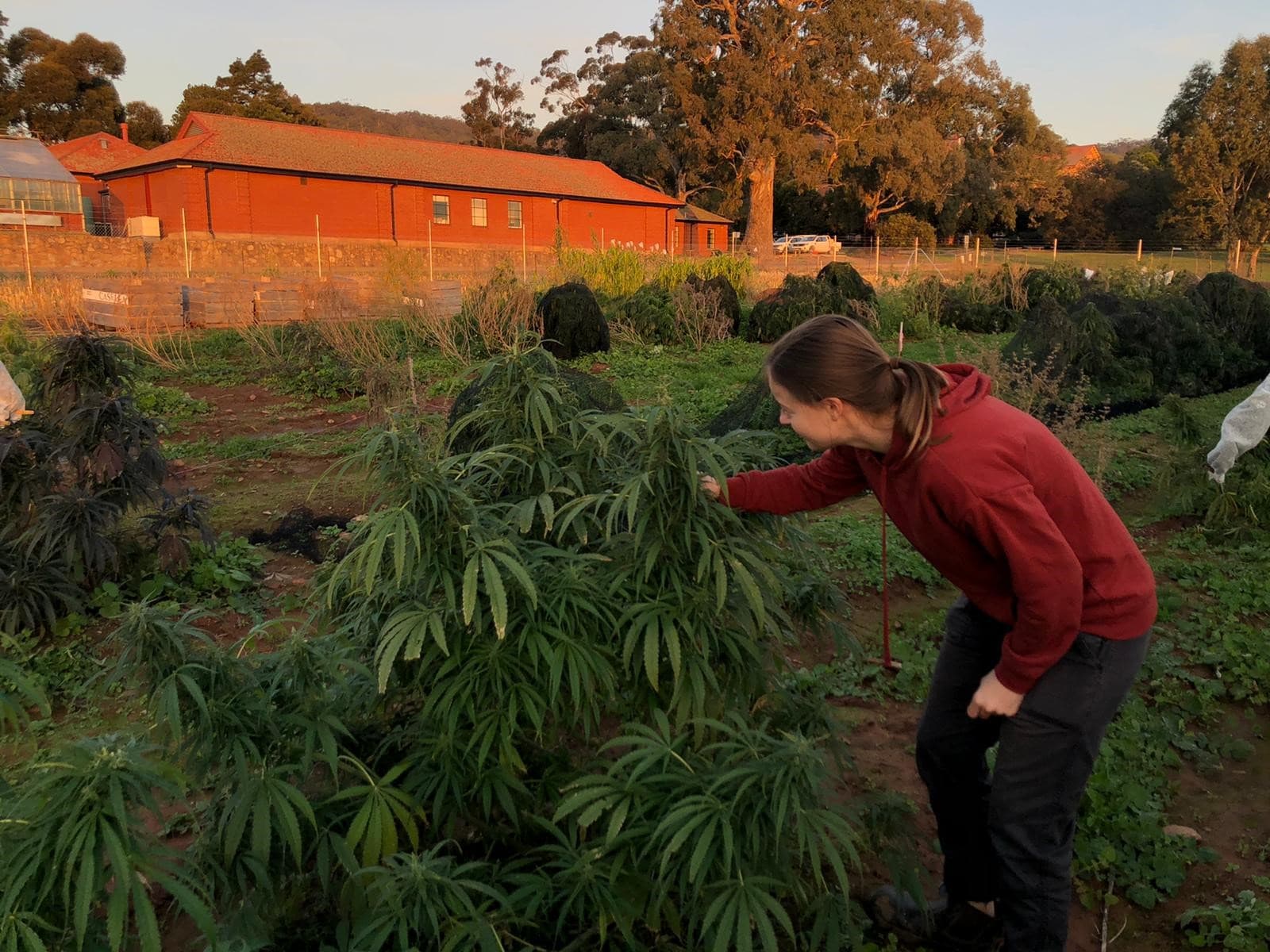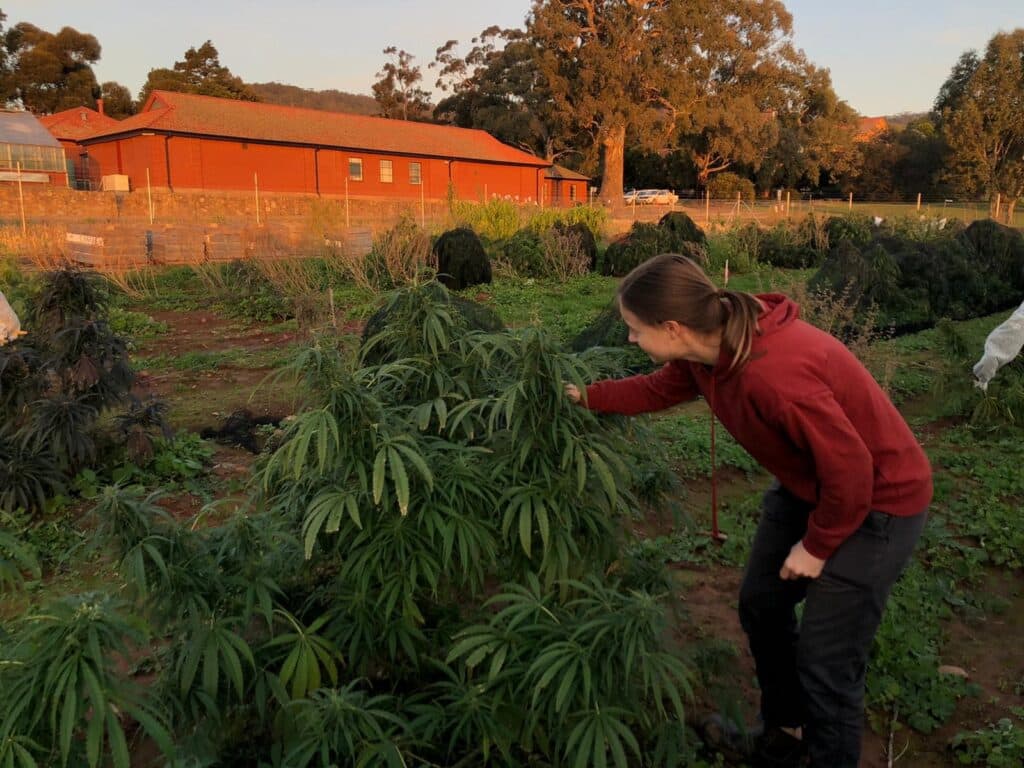AgriFutures Horizon Scholarship alumni and University of Adelaide PhD student Alison Gill has uncovered that industrial hemp is able to survive, and thrive, when grown under low moisture conditions. Her research has the potential to be a game-changer for this emerging agricultural industry.
Hemp thriving under tough conditions
Fresh discoveries from the greenhouse at the University of Adelaide have shown that industrial hemp can survive at low soil moisture content.
Alison Gill is halfway through her PhD which is determining the drought tolerance and water use efficiency of industrial hemp. She’s been surprised at the findings and says hemp could be the next industry to address future agricultural industry challenges.
“Drought in Australia is projected to get a lot worse, putting pressure on commonly grown crops to produce food and fibre. Hemp is a relatively new crop to Australia and could provide a solution to these water issues. It’s been labelled as a ‘miracle crop’ due to its low water use, low fertiliser and pesticide inputs and its ability to produce many different products from the one plant,” said Ms Gill.
Alison says her research has been on a slow road due to the fact that there’s a very small bank of knowledge about hemp compared to other crops such as rice, wheat and cotton.
“However, the fact that we know so little makes the research very exploratory and exciting.
“The next steps are to look at what yield we can generate at different moisture levels because it’s one thing that the plant survives at low soil moisture levels but it also has to have a strong yield.”
Could hemp be the new cotton?
Alison is passionate about sustainable agriculture and climate change and says her research shows great promise for hemp to eventually replace higher water use crops like cotton. As more and more consumers turn towards green textiles, this research has impacts right through the supply chain.
“There are still some major blockages to the uptake of industrial hemp across Australia for producers. One of them is the lack of published research into breeding, improving genetics and other key areas. Hemp has been grown for thousands of years but not here in Australia and not commonly at a commercial level. The other challenge the industry faces are the regulatory hurdles. In South Australia, for example, crops must be tested and if they breach the 1 per cent tetrahydrocannabinol (THC)* threshold they need to be destroyed. This is a huge risk for producers.”
*Tetrahydrocannabinol (THC) is the principal psychoactive constituent of cannabis.










